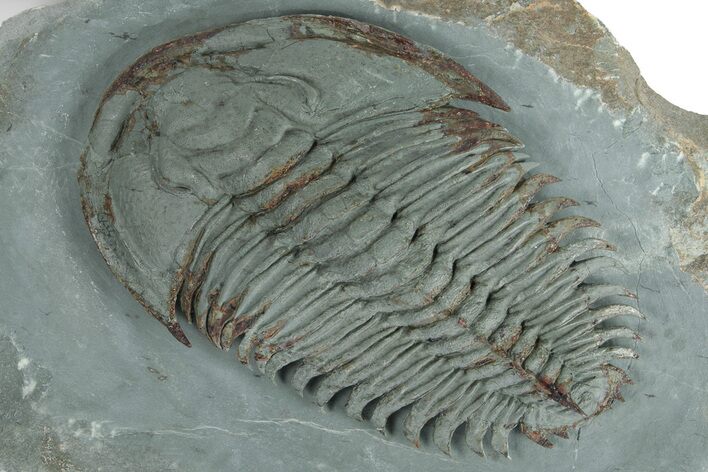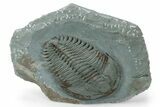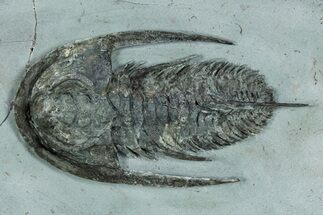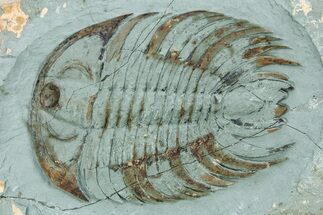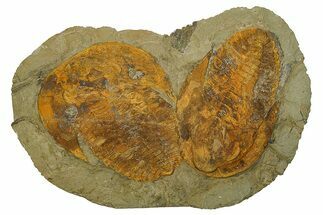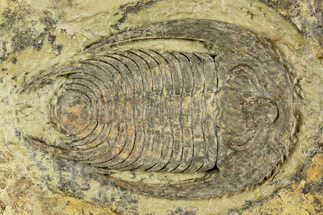5.2" Lower Cambrian Trilobite (Longianda) - Issafen, Morocco
This is an impressive, 5.2" long example of Longianda termieri (Neltner & Poctey, 1950) from the Issafen Formation of Morocco. It has been beautifully prepared in high relief against the surrounding shale and the natural, rust colored highlights around the edges adds to the aesthetics of the piece.
About Issafen Trilobites
In the past few years, deposits near Issafen, Morocco have begun yielding a new assemblage of Early Cambrian trilobites. This fauna is very diverse and consists mainly of ellipsocephalids, chengkouiids, gigantopygids, holmiids, neltneriids, saukiandids, and the latest fallotaspids. The shale is a greenish to slightly yellow color when freshly split, but weathers to a light grey.
In the past few years, deposits near Issafen, Morocco have begun yielding a new assemblage of Early Cambrian trilobites. This fauna is very diverse and consists mainly of ellipsocephalids, chengkouiids, gigantopygids, holmiids, neltneriids, saukiandids, and the latest fallotaspids. The shale is a greenish to slightly yellow color when freshly split, but weathers to a light grey.
About Trilobites
Trilobites are an extinct class of marine arthropods that thrived for nearly 270 million years, from the early Cambrian to the end of the Permian period (around 521 to 252 million years ago). They are one of the most successful and diverse groups in the history of life, with over 25,000 described species spanning a wide range of sizes, shapes, and ecological niches. Known for their distinctive, segmented exoskeletons, trilobites provide invaluable insights into the evolutionary history of arthropods and the dynamics of ancient marine ecosystems.
Trilobites are an extinct class of marine arthropods that thrived for nearly 270 million years, from the early Cambrian to the end of the Permian period (around 521 to 252 million years ago). They are one of the most successful and diverse groups in the history of life, with over 25,000 described species spanning a wide range of sizes, shapes, and ecological niches. Known for their distinctive, segmented exoskeletons, trilobites provide invaluable insights into the evolutionary history of arthropods and the dynamics of ancient marine ecosystems.
$2,395
SPECIES
Longianda termieri (Neltner & Poctey, 1950)
LOCATION
Issafen, Morocco
FORMATION
Issafen Formation
SIZE
5.2" long
CATEGORY
SUB CATEGORY
ITEM
#249257
We guarantee the authenticity of all of our specimens.
 Reviews
Reviews

